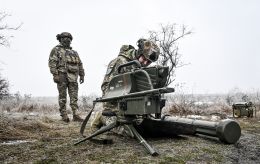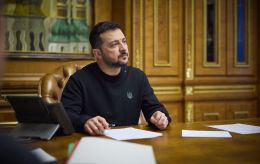Heading South: How Ukraine seeking allies beyond Europe and US
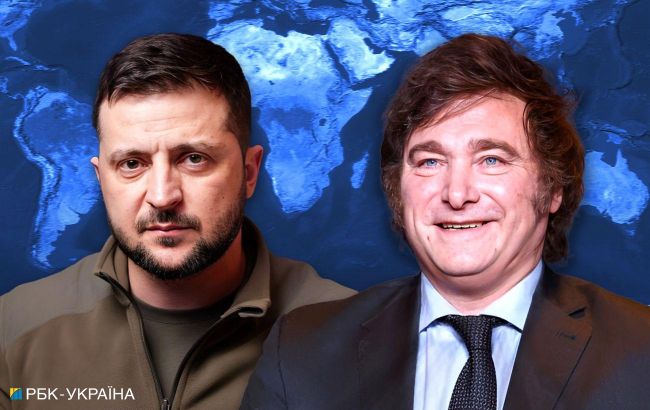 Volodymyr Zelenskyy and Javier Milei, Presidents of Ukraine and Argentina (RBC-Ukraine collage)
Volodymyr Zelenskyy and Javier Milei, Presidents of Ukraine and Argentina (RBC-Ukraine collage)
Whether Ukraine managed to win the favor of Latin America, Africa, and Asia in the two years of full-scale war, how Ukrainian diplomacy fought Russian influence there, and what it plans to do in the foreseeable future, read in the RBC-Ukraine article.
Sources used: Financial Times, Business Insider, and the US Department of State, comments by Deputy Foreign Minister of Ukraine Iryna Borovets, Special Representative for the Middle East and Africa Maksym Subkh, and Ambassador of Ukraine to China Pavlo Riabikin.
Since the full-scale Russian invasion, Kyiv became noticeably more active on the diplomatic front to enlist the support of as many countries as possible and to inform the world about what was happening in Ukraine. In particular, this included Africa, Latin America, Asia, and the Middle East, or the so-called Global South. But given Russia's historically strong positions in these regions and its relatively greater resources, this is a long-term task.
Latin America
Recently, Argentine President Javier Milei announced plans to hold a summit of Latin American countries to support Ukraine and to visit Kyiv this year. Since the beginning of Russia's full-scale invasion of Ukraine, Argentina has maintained a largely neutral (though bordering on pro-Russian, given its intentions to join the BRICS) position on the war, but since Milei came to power, the country's foreign policy has changed dramatically.
Even during the presidential race, Milei was noted for his statements in support of Ukraine, and after winning the election, he invited Ukrainian President Volodymyr Zelenskyy to his inauguration. Immediately after taking office, the new Argentine president stopped the rapprochement with Russia and officially supported Ukraine. According to media reports, he even handed over two helicopters to Ukraine that had been purchased in Russia in 2011.
The announced summit between Ukraine and Latin America is an achievement of the Ukrainian and Argentine presidents, Deputy Foreign Minister Iryna Borovets told RBC-Ukraine. The idea of such a summit was born during Zelenskyy's visit to the inauguration of Milei.
"They had a meeting. The idea was born, and Argentina offered to host the summit. Now we are working on this with the Argentine side," she says.
 Argentina wants to host a Latin American summit with Ukraine (Photo: president.gov.ua)
Argentina wants to host a Latin American summit with Ukraine (Photo: president.gov.ua)
According to Borovets, for Kyiv, this summit is not just a chance to bring Latin American leaders together to talk about Russian aggression and the Ukrainian formula for peace, but also an opportunity to explain to the countries of the region the benefits of cooperation with Ukraine.
"This is one of the focuses of the summit. This summit is not only about Ukraine. This summit is about what Ukraine can do for the region. And this region is huge - it includes 33 countries. These are the three 'tigers', such as Mexico, Brazil, and Argentina, which are members of the G20," the Deputy Minister explains.
Since Russia's full-scale invasion, Ukraine has been actively working to develop relations with Latin America to bring the countries of the region back to its side and isolate Russia as much as possible in the international arena. In January of this year, Ukraine launched the Latin American Strategy and, according to Borovets, this year the region will be in the focus of Ukrainian diplomacy.
"Speaking of Latin America, this year it is the focus of attention, just as Africa was last year. In Africa, some processes have already been launched, and Latin America is one of the priorities where a breakthrough should take place this year," she tells RBC-Ukraine.
In particular, Ukraine's plans for this year include expanding its diplomatic presence in the region. Today, there are only six embassies in Latin America, covering several countries in the region, but the number of diplomatic missions will increase. According to Borovets, new embassies will appear in several countries that rank first in terms of GDP in the region or have headquarters of international organizations.
In general, Latin America is mostly on the side of Ukraine in the context of Russia's war. The countries of the region support Ukrainian resolutions at the UN (and those that are generally considered pro-Russian abstain rather than vote against them) and participate in Ukraine's initiatives, such as the Ramstein meetings or meetings on the peace formula. The historic warrant of the International Court of Justice for the arrest of Russian dictator Vladimir Putin was signed by Costa Rican judge Sergio Gerardo Ugalde Godinez.
The vast majority of Latin American countries, according to Borovets, understand what the Ukrainian peace formula is and are looking for themselves in it. They are interested in the points on food and nuclear security, and Argentina is ready to take an active part in the release of civilian hostages and the return of illegally deported children.
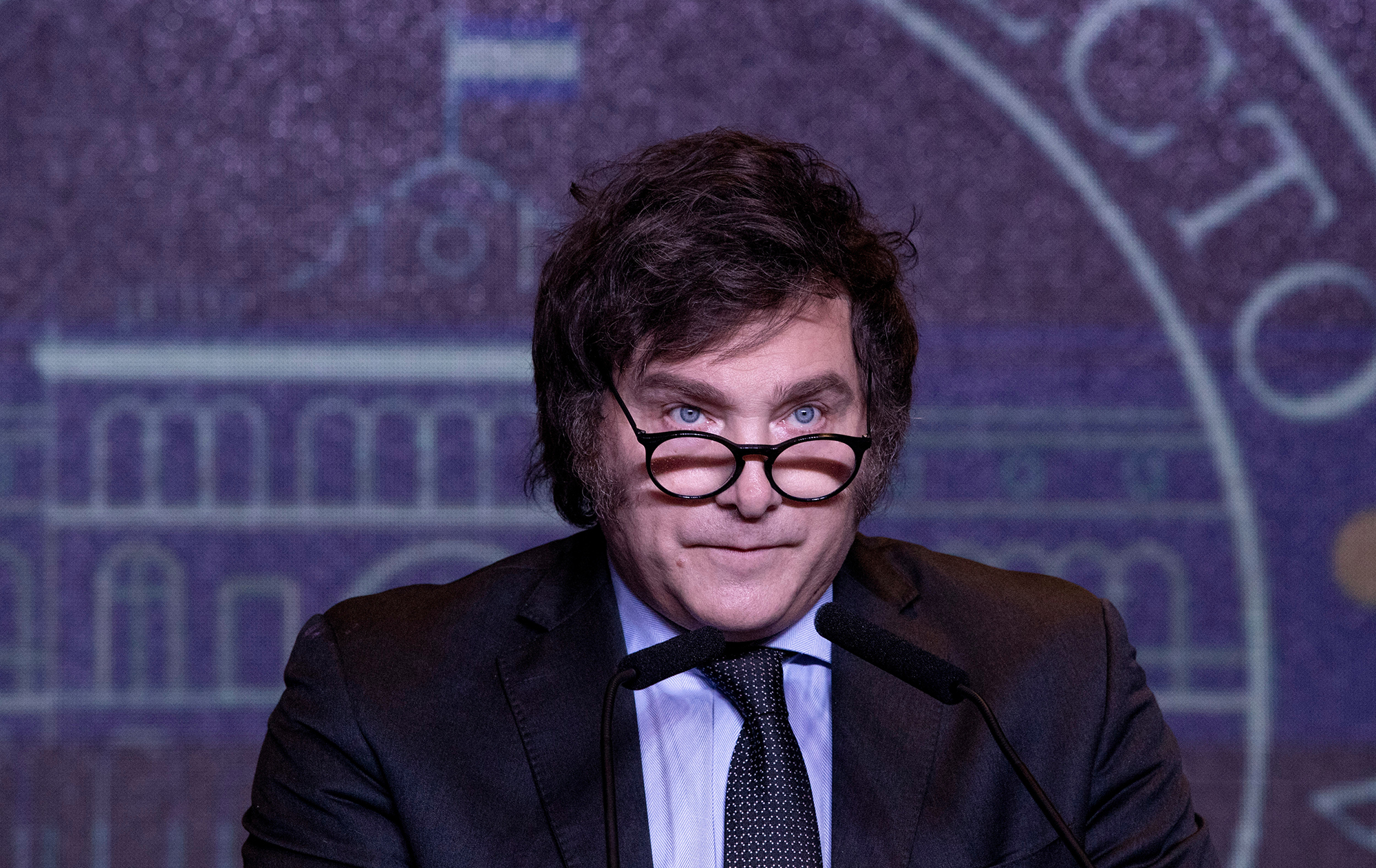
Argentina is ready to participate in the peace formula (Photo: Getty Images)
"Each country has its vision of its involvement in the process that will lead to victory and peace in Ukraine. Sometimes, of course, some countries ask when the negotiations with Russia will start. But we always have an explanation for this: the only way to peace is the Ukrainian formula. Of course, they may have their views, but no one has offered us to abandon our principles yet," the diplomat says.
But, as Borovets notes in a conversation with RBC-Ukraine, it will take decades for Ukraine to become a true friend to Latin America, as geographic remoteness and systemic absence in the region have allowed Russia to spread its influence there. Today, hard work is being done daily to keep Ukraine on the agenda in Latin American countries, but it is a long game.
Africa
Last year, Ukraine was very active in the Global South. First of all, with Africa.
Back in 2022, the African Strategy was approved, the development of which began before the full-scale war. A year after that, Foreign Minister Dmytro Kuleba made two African tours, President Volodymyr Zelenskyy held dozens of conversations with African leaders, and an entire African delegation visited Kyiv.
Maksym Subkh, Special Representative for the Middle East and Africa tells RBC-Ukraine that after the outbreak of the full-scale war, the primary task of Ukrainian diplomacy was to mobilize support from the whole world, including Africa, which did not yet realize the terrible consequences of Russian aggression for the countries of the region.
"Few people in Africa realized their dependence on Ukrainian grain or Ukrainian fertilizers. Few people realized that the economies of some countries on the continent, especially in North and East Africa, had a system of business contacts with Ukraine that collapsed because of the war. Needless to say, many students who studied in Ukraine and became victims of this aggression suffered," he explains.
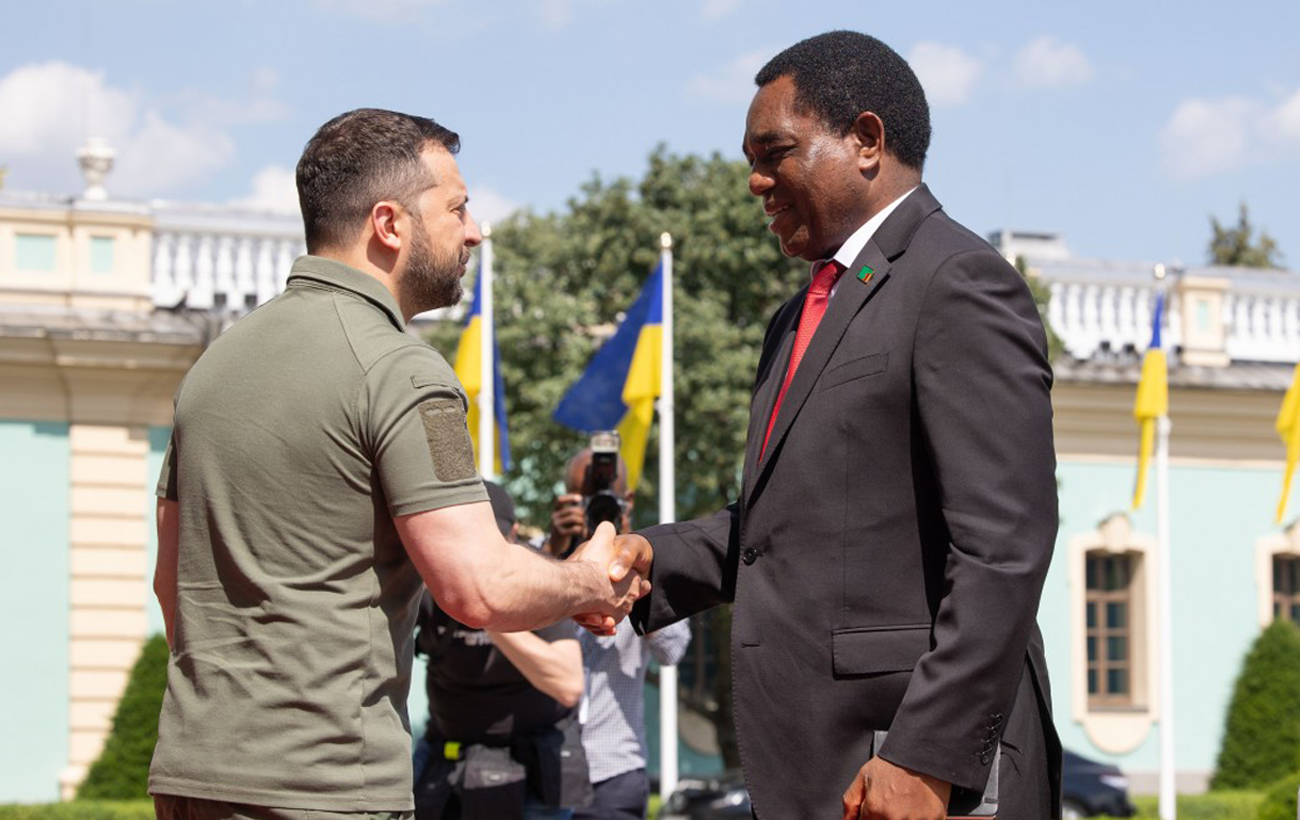 Ukraine actively developed ties with Africa last year (Photo: president.gov.ua)
Ukraine actively developed ties with Africa last year (Photo: president.gov.ua)
According to Subkh, the fact that African countries also have experience fighting for their independence helped Ukraine gain the support of the African community. This is the basis of Ukrainian-African relations and has yielded results. Last year, a resolution containing the Ukrainian formula for peace was supported by 30 African countries.
"That is, we are saying that we have a common understanding of international law and the UN Charter with African countries. African countries do not recognize the occupation of Ukrainian territories, we have no precedents when Africa went against international law," the diplomat adds.
However, as Subkh acknowledges, the so-called neutrality towards Russian aggression against Ukraine is widespread among many African countries. Last year, South African President Cyril Ramaphosa came to Ukraine together with the head of the African Union and leaders of several other countries in the region to present his so-called ten-point peace plan.
The African plan proposed to start negotiations between Ukraine and Russia, as well as "joint de-escalation." However, the plan also provided for humanitarian aid to war-affected people, the reconstruction of Ukraine, and the movement of grain ships in the Black Sea. The issue of grain was very important for Africa, as African countries felt the consequences of the then-Russian blockade of shipping and were threatened with famine.
The visit to Ukraine changed African views on the war, Subkh tells RBC-Ukraine, as African leaders saw the destruction caused by the Russians near Kyiv and also got acquainted with the Ukrainian formula for peace, which contained all the good and rational things that they had been proposing.
"Much of what Ramaphosa said is synchronized with our formula for peace. They listened, and after that, in Russia, at a meeting with Putin, they started using the term war, which was not the case before. One of the consequences of the visit was a clear rejection of Russia's approach to ensuring food security in Africa. Then they said that Russia should restore free and unimpeded movement of agricultural goods," the special representative says.
Today, Ukraine and African countries regularly discuss the formula for peace, and many of them are directly involved in meetings and conferences held by the Office of the President in preparation for the Global Peace Summit.
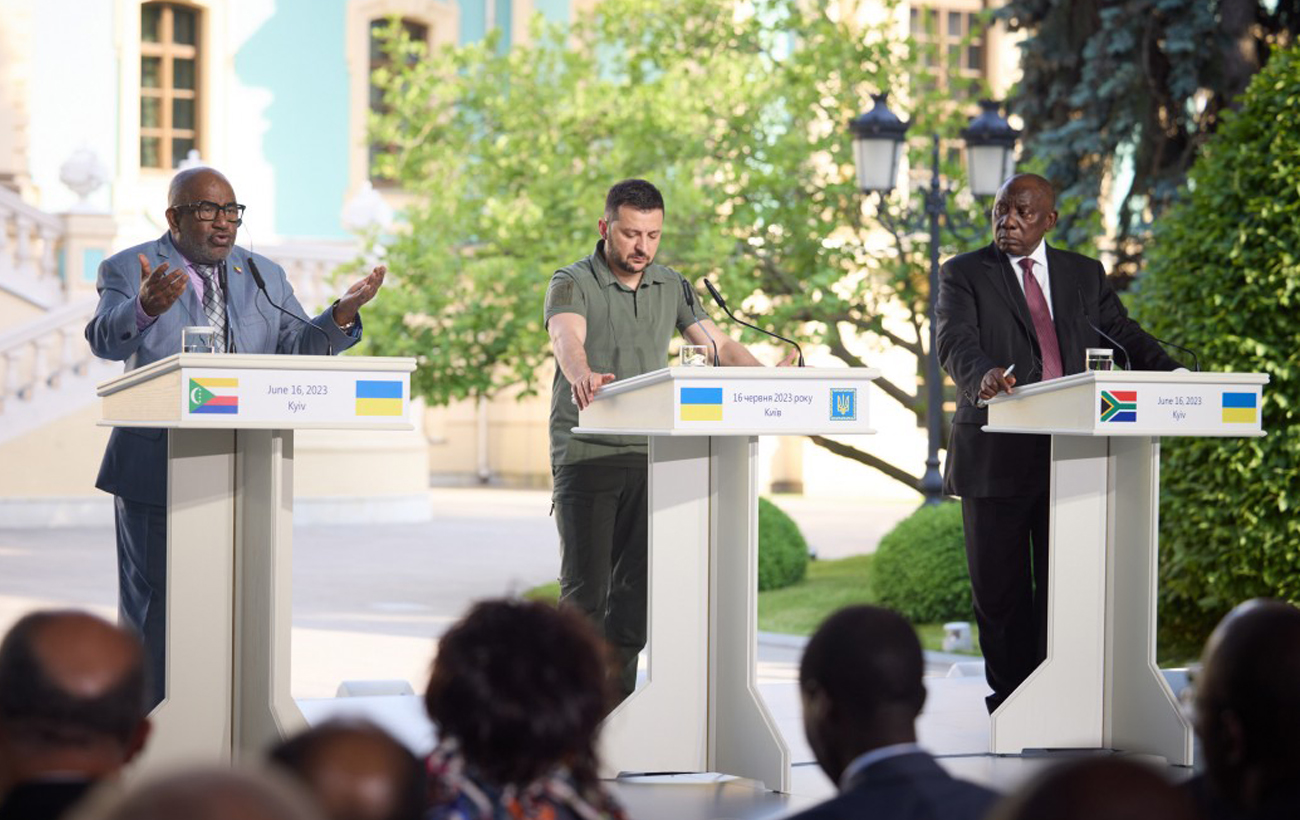 The visit to Ukraine helped African countries change their vision of war (Photo: president.gov.ua)
The visit to Ukraine helped African countries change their vision of war (Photo: president.gov.ua)
However, Russia's influence in Africa, which had been growing for decades while Ukraine was not paying attention to the continent, has not disappeared. After the death of Yevgeny Prigozhin, head of PMC Wagner, whose militants were very active in many African countries, Moscow plans to further increase its influence in the region. In particular, according to RBC-Ukraine, it is about a dozen countries, mostly former French colonies, and it is about both the military presence of Russians and their interest in mining, in particular uranium.
Recently, the US State Department has publicly disclosed the existence of an entire Russian center for spreading propaganda among African countries. Russian propaganda is a big challenge for Ukraine, Subkh acknowledges, as Russia has large financial, technical, and human resources to promote its narratives and fakes about aggression against Ukraine.
"Last year, we organized two courses for African diplomats and politicians, telling them about the nature of Russian aggression, about Wagner, and the threats from cooperation with Russia. Of course, the counteraction will continue. Thanks to the help of our Western partners, we are working to minimize the effects of propaganda. And where we do not have time, we engage our partners to help us," the diplomat says.
China and India
China is considered the key country in the Global South in terms of both economic and political influence. China is the world's first largest economy (if we count GDP at purchasing power parity). Ukraine has complicated relations with China, especially after the outbreak of the war.
China is neutral in the war (which Beijing itself calls the "Ukrainian crisis"), but de facto it concerns only Ukraine. Although Beijing recognizes Ukraine's sovereignty and territorial integrity in its official statements, it defends Moscow, justifying the invasion by allegedly expanding NATO and ignoring Russia's interests.
Beijing also continues to maintain friendly relations with Moscow and develop economic cooperation, which helps Russia mitigate the effects of Western sanctions. According to Business Insider, trade between Russia and China grew by 26% in 2023. At the same time, Chinese exports jumped by 47%, while imports from Russia increased by 13%.
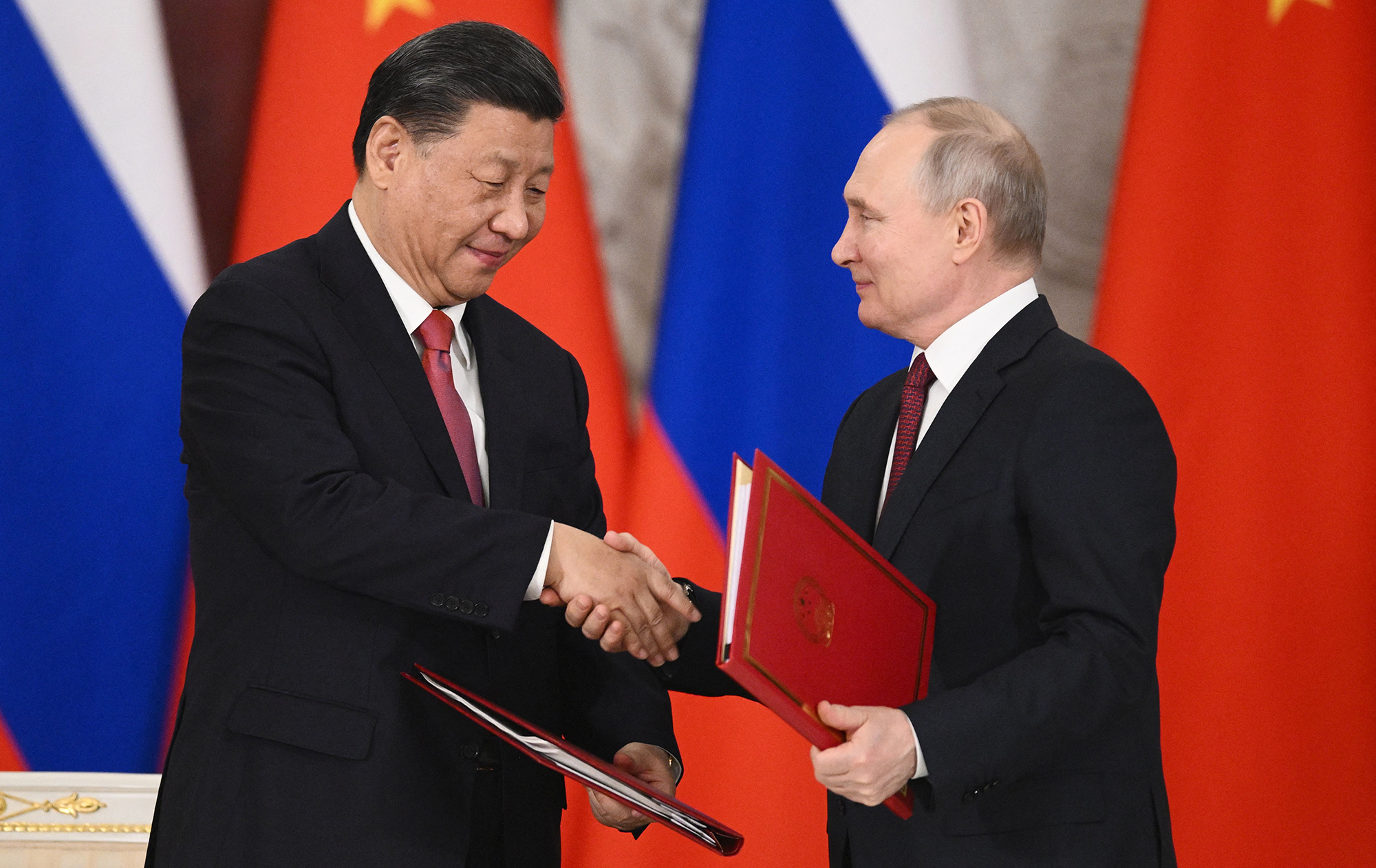 China, despite its so-called neutrality, actively cooperates with Russia (Photo: Getty Images)
China, despite its so-called neutrality, actively cooperates with Russia (Photo: Getty Images)
At the same time, China has avoided contact with Ukraine. In the two years of full-scale war, Zelenskyy and Chinese President Xi Jinping have had only one phone conversation, which was initiated by Kyiv. In addition, there have been only a few contacts between Ukraine and China at the ministerial level, and a special representative of Beijing has visited Kyiv twice.
"Unfortunately, our current level of dialogue with China, which has always been one of our most important partners, cannot be called dynamic, although we are certainly not talking about a complete cessation of contacts. A few weeks ago, the Foreign Ministers of the two countries had the opportunity to communicate and discuss several important issues on the sidelines of the Munich Security Conference. We are also working on further contacts," Pavlo Riabikin, Ukraine's Ambassador to China, tells RBC-Ukraine.
Ukraine is seeking the participation of such a powerful regional and global player as China in the Global Summit on the Ukrainian Peace Formula. Beijing has effectively ignored the Ukrainian initiative, although it did participate in one of the meetings at the level of diplomatic advisors and ministers. Instead, China has its own peace plan, which was presented by Xi Jinping last year. At the same time, Chinese special representative Li Hui visited Kyiv and Moscow, but Beijing did not receive the desired support for its peace initiative.
"The format of the Ukrainian peace formula is as open as possible. We invited all countries, including China, to join its implementation and choose which points to work on. We are interested in Beijing joining the work on certain points of the peace formula because some of them are in line with China's position, such as food and nuclear security, and humanitarian issues. This confirms the existence of points of contact and opportunities for cooperation," Ryabikin tells the agency.
The other day, after he visited Moscow, Li Hui came to Kyiv again amid calls from official Beijing for talks between Ukraine and Russia. Judging by the restrained press release of the Chinese Foreign Ministry, which spoke only of frank and friendly talks on China-Ukraine relations and the so-called Ukrainian crisis, the visit of the special representative again did not bring results to Beijing.
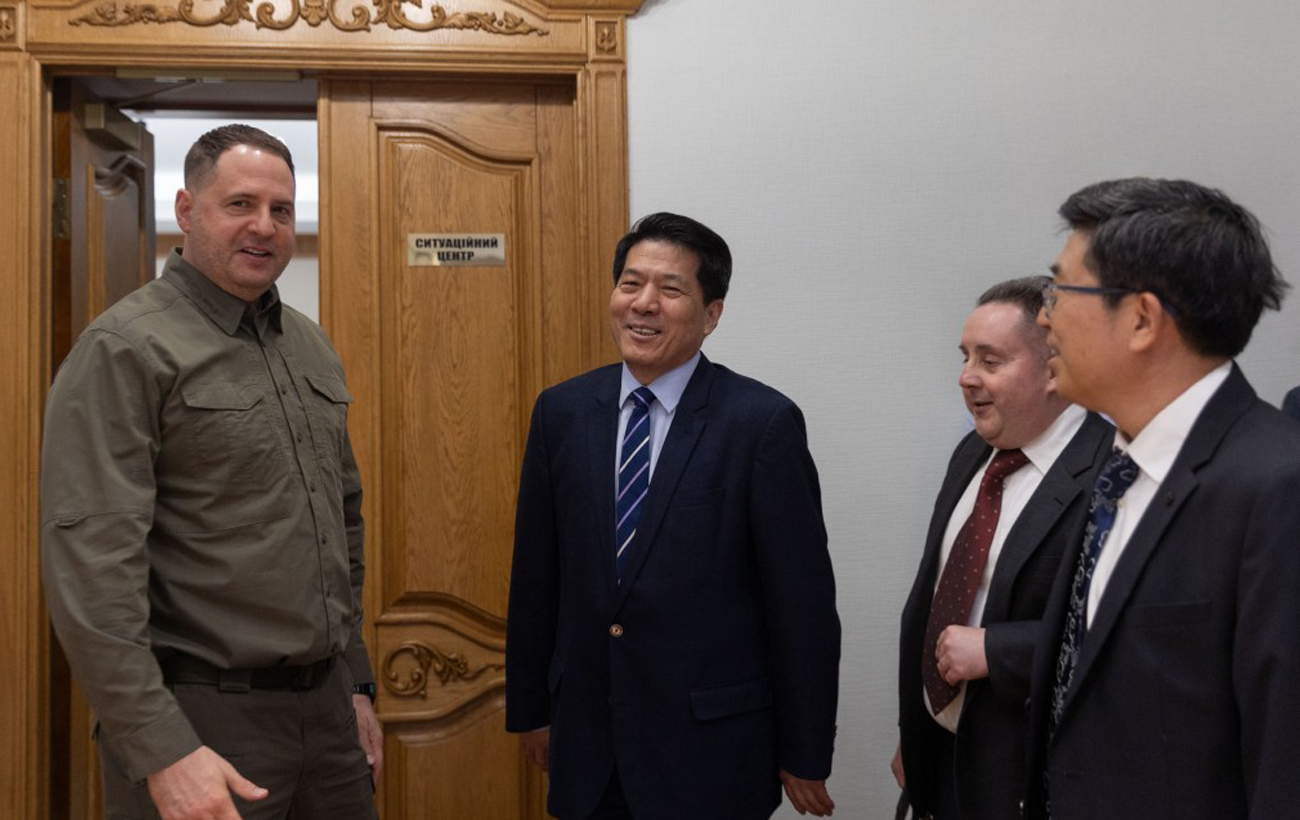 China's Special Representative Li Hui visits Kyiv again (Photo: president.gov.ua)
China's Special Representative Li Hui visits Kyiv again (Photo: president.gov.ua)
But despite the differences, Ukraine needs to fight for China's support and establish a dialog with it. As Ryabikin explains to the agency, the effectiveness of relations between Kyiv and Beijing can be important in the broader context of Ukraine's interaction with the states of the Global South.
Another powerful global representative of the Global South is India. At first glance, Ukraine's relations with India do not differ from its relations with China, as New Delhi also closely cooperates with Moscow. However, close relations with Russia are a given for many countries in the Asian region, says Iryna Borovets. And no matter how much Ukrainians would like the whole world to stop being friends with Moscow, this will not happen.
"It doesn't work that way. We need to have an adult position and understand how we can work with this, and where the points that can be pressed to benefit us. We can demand that India does not buy Russian oil, but will it work?" explains the Deputy Foreign Minister.
According to her, Ukraine needs to find areas of cooperation with India that will yield results and bring the victory and reconstruction of Ukraine closer. And now, she adds, there are good prospects for this, as political dialogue has resumed between Kyiv and New Delhi. In particular, on the sidelines of last year's G7 summit in Japan, Zelenskyy met with Indian Prime Minister Narendra Modi.
"We have to work. We are preparing a visit of Minister Kuleba to India. We hope that during this visit we will hold a regular meeting of the intergovernmental Ukrainian-Indian Commission on trade and economic cooperation, which has not met for a long time. This will give an impetus to political dialogue and economic cooperation," Borovets says.
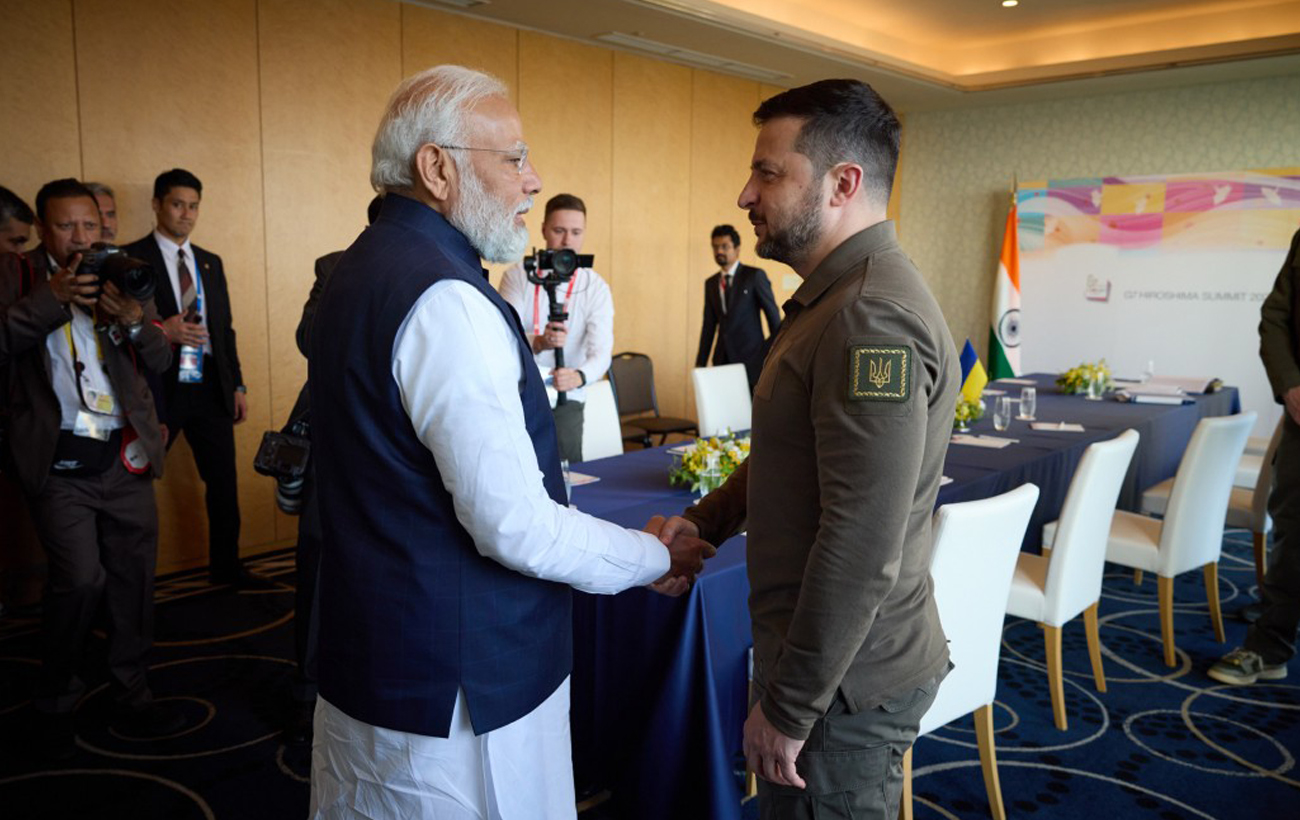 Ukraine has intensified political dialogue with India (Photo: president.gov.ua)
Ukraine has intensified political dialogue with India (Photo: president.gov.ua)
Plans for future
Last year was a breakthrough in relations with Africa. In particular, the opening of 10 new embassies in the region was launched. As of today, nine of them, according to Maksym Subkh, are ready to start working in the coming months. Ukrainian ambassadors are already in Ghana and Rwanda, and soon the diplomatic missions in Côte d'Ivoire, Mozambique, and the Democratic Republic of Congo will be staffed.
"What are these embassies for? Africa pays considerable attention to the presence of partners in its territory. The presence of our diplomats and ambassadors there will be the key to restoring ties and integrating our economy into Africa," the diplomat explains to the agency.
This year, he says, Ukraine plans to continue political dialogue and high-level contacts, as well as work to involve as many African countries as possible in the Global Peace Summit, especially at the highest level.
In addition, Kyiv continues to work on organizing a high-level meeting in the Ukraine-Africa format in one of the African capitals.
"This issue remains relevant. This is if we talk strategically. And if we talk about tactical plans, we plan to establish joint intergovernmental commissions with certain African countries, we plan to continue the dialogue on signing joint trade agreements, in particular with Morocco and Tunisia, and we also want to liberalize our trade ties with Egypt. And finally, the IT sector and education," Subkh adds.
Ukraine also wants to see as many Latin American countries as possible at the Global Peace Summit. Kyiv, according to Borovets, wants Latin American countries to actively participate in the work on each point of the Ukrainian peace formula.
One of Kyiv's priorities this year will be to hold the Ukraine-Latin America summit already announced by Argentina and to expand its diplomatic presence in the region.
"We want to be present in regional organizations that matter in these regions. We have to increase our political dialogue, in particular, we are talking about high-level and top-level visits," she adds, speaking about the plans of Ukrainian diplomats for 2024.
Ukraine also plans to continue working with China. As Ambassador Ryabikin tells RBC-Ukraine, the priority for this year is to maintain a political dialogue with Beijing and intensify practical cooperation. According to him, Ukraine has already reached certain agreements with the Chinese side to intensify cooperation between the two countries.
